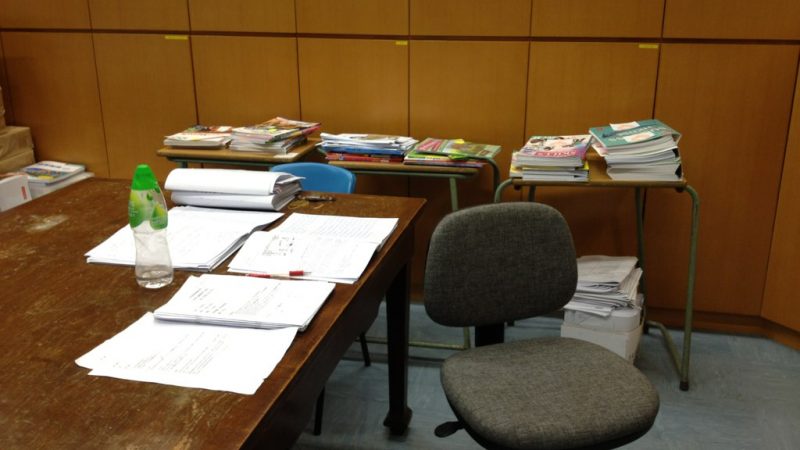University workers are facing 100% wage deductions

Universities are being named and shamed for imposing wage deductions of up to 100% on staff participating in a marking boycott over pensions, pay, labour precarity and work conditions.
Last Thursday, university staff across the UK carried out a marking and assessment boycott at 145 universities, after members of the University and College Union (UCU) voting to reject a pay offer of between 5-8%, imposed by employers.
UCU have said the boycott will continue until an improved offer is made which doesn’t represent a real-terms pay cut, whilst a growing number of university staff are announcing their resignation following the imposed wage deductions.
Professor David Clough was working part-time for the University of Edinburgh as an external examiner, however he resigned from the positon yesterday over his ‘profound disappointment’ that his employer had chosen to join other universities in imposing pay deductions.
It’s not the first-time workers have quit over wage deductions being imposed by university bosses, but the current scale of the issue and number of universities affected marks it out.
The University of Edinburgh have implemented 50% wage deductions on markers, whilst UCU are now naming and shaming the vice-chancellors at universities that have chosen to inflict deductions of 100%.
Talking to LFF, Professor Clough believed we are seeing universities nationally adopting the kind of intimitatory policies en-masse that were previously restricted only to a small number of institutions.
“What they’re trying to do is implement punitive and intimidatory deductions to have the maximum effect in disrupting action,” said Clough, who specialises in theology and ethics.
“That seems obviously unethical because it’s asking people to work for their employers for no money for at least part of their time, with pay deductions that are entirely disproportionate to the work that is being withdrawn under the boycott.
“It’s a shift in the way they’re treating this. It’s become quite hard line and national in the way they’re tackling any kind of opposition and rights of their employees.”
He said the main reason he resigned was to draw a line in the sand, that this kind of response to industrial action is not acceptable.
“Academics need to make clear that business as usual can’t carry on if universities are prepared to engage in this kind of aggressive and punitive action.”
He believed many more people will be doing the same thing in the days and weeks ahead, and that this will pose ‘highly inconvenient’ for universities and threaten the standard of quality assurance in the examination process.
The University Employers Association (UCEA), who represent employers in the UK Higher Education sector, have said it is, “simply untrue that HE employers withholding pay for not fulfilling contracts are “threats” that are “aimed at intimidation”.”
They stated that policies on withholding pay are, “clear and factual, communicated to staff, and aimed at protecting students.”
Their statement added that, “HE institutions respect employees’ right to take lawful industrial action and, in turn, UCU needs to respect the employers’ right to withhold pay for not fulfilling contracts”.
In a letter to MPs, written yesterday by UCU general secretary Jo Grady, she urged ministers to contact university vice chancellors to withdraw planned deductions.
MPs such as John McDonnel and Jeremy Corbyn have come out to condemn the threat of deductions by university bosses and called on vice chancellors to get around the table and negotiate with unions to settle the dispute.
Hannah Davenport is trade union reporter at Left Foot Forward
(Photo credit: Creative Commons)
Left Foot Forward’s trade union reporting is supported by the Barry Amiel and Norman Melburn Trust

To reach hundreds of thousands of new readers we need to grow our donor base substantially.
That's why in 2024, we are seeking to generate 150 additional regular donors to support Left Foot Forward's work.
We still need another 117 people to donate to hit the target. You can help. Donate today.



